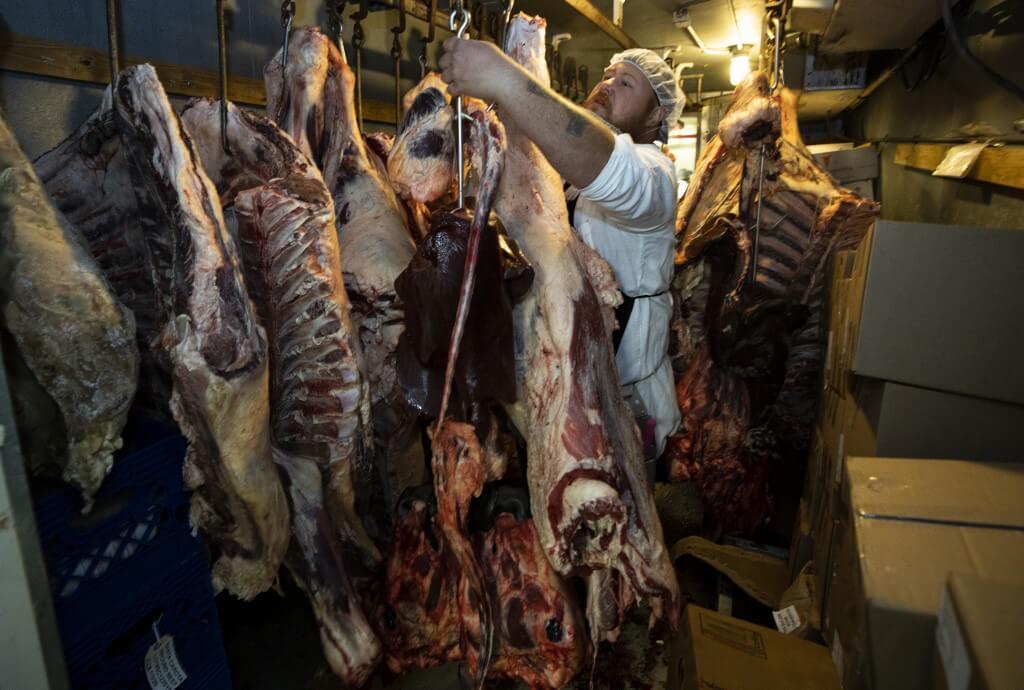
What do the best jobs in the world mean to you?
Do they mean having a high paycheck? Or do they have to offer room for skill development and fulfilment to take you further in life?
There’s no denying that we have different criteria and opinions when it comes to landing a jobdisc we deem the best in the world.
But it’s safe to say that the definition of the “best jobs in the world” is no longer within the confines of a hefty paycheck.
These best jobs in the world typically share some common attributes, especially since we now live in a world where a harmonious work-life balance, opportunities for self-growth, and a positive impact on people and the planet are now important job factors for many of us.
However, that doesn’t mean we seek low-paying jobs — rather we seek jobs that pay well, provide security, and make us feel proud of our work.
A 2020 study has shown that 84% of those working would take a new job if it came with new opportunities and benefits, such as work-life balance, fulfilment, and a better paycheck.
Job seekers are changing their demands and behaviours. The good news? So is the job market.

In the earliest civilisation, people engaged in hunting, gathering, and simple agricultural activities for survival. Source: AFP
Best paying jobs in the world: How it all began
The history of jobs and professional occupations is deeply intertwined with the evolution of mankind.
The concept of work has undergone significant shifts over the millennia, shaped by cultural, technological and economic developments.
But how did the concept of jobs begin, you wonder?
In the earliest civilisation, people engaged in hunting, gathering, and simple agricultural activities for survival.
While these roles weren’t exactly jobs, but survival skills, there was a division of labour, which was often based on age and gender, with different roles for men and women.
Then came the innovation of agriculture, which shifted the nomadic hunter-gatherer lifestyles to agricultural communities.
With the domestication of plants and animals, people began to specialise in farming, herding and fishing. This specialisation marked a pivotal moment in human history, slowly paving the way to actual jobs.
Eventually, it expanded to specialised skills (think craftsmanship, artisans, trading) and not long later, specialised knowledge (law, medicine, accounting).
Finally, in the 20th century, we witnessed the professionalisation of various occupations.
Licensing and accreditation became common in fields like medicine, law, engineering, and accounting. Professional associations were established to set ethical standards, ensure competence, and regulate entry into these fields.
In other words, 9-to-5 jobs became the norm.
And just when you think the job market couldn’t change any further, we have the 21st century fixing every mistake the 20th-century job market couldn’t — we have remote working, flexible hours and overall, a workplace where creating and delivering value takes precedence over time spent on the job.
Does that mean that hard, manual labour in the 21st century has finally come to an end?
While the job market for the best paying jobs has significantly changed, 3D jobs still very much exist, and will continue to do so.

Meatpacking is considered a 3D job. Source: AFP
3D jobs: The opposite of the best jobs in the world
3D jobs refer to dirty, dangerous, and demeaning jobs, commonly found in agriculture, manufacturing, construction, and cleaning sectors.
It’s essential to acknowledge the flip side of the best jobs — the occupations that epitomise hardship and challenges.
3D jobs are essentially jobs that no one, especially the younger generation, wants to take up, which is becoming an increasing concern for many countries.
In Malaysia, for example, the government has expressed its concern about Malaysian youths’ hesitance in picking up 3D jobs not because of the salary, but the nature of the jobs, which they find demeaning and “low class.”
Even when there were almost 700,000 Malaysians out of jobs in 2022, many still refused to take up 3D jobs, and companies end up hiring workers from abroad instead.
In more developed (or even less developed) countries, however, you would see locals doing these 3D jobs. In most cases, they are more than happy to do them.
Some are even paid three to six times more than what 3D workers get in Malaysia.
Besides that, the citizens in these countries possess no social stigma surrounding jobs in the 3D sector, despite the possibility of these jobs being physically and mentally demanding.
All in all, the hesitancy towards 3D jobs among the younger generations reflects a complex interplay of changing values, safety considerations, technological advancements and evolving career expectations.
But it’s important to remember that all jobs can be equally fulfilling, especially now that there’s more emphasis on taking and creating jobs that offer good pay, a healthy workplace culture, opportunities to grow, job security and good values.
Best jobs in the world: From high-demand fields to specialised expertise
1. Environmental engineer
With a climate crisis and many other environmental challenges looming, environmental engineers are now indispensable.
Beyond the high earning potential, you will engage in continuous learning, contributing to sustainable solutions for the planet.
Your fieldwork and office responsibilities provide a well-rounded professional life.
Valeria from Arizona State University finds studying environmental engineering especially meaningful because she is passionate about helping communities that don’t have access to proper sustainable and efficient solutions to managing the environment.
“For me, being an environmental engineer means putting hard work into helping the communities around us to enjoy better living conditions and making sure the next generations have all the resources they need. It is the perfect combination of science and social work,” she said, as quoted by Kaplan Pathways.
“I want to help people gain access to drinking water and I want to help cities in developing countries become more efficient when it comes to waste, resource management, and urban planning. I also want people to be more aware of the way that they are living their lives and what they could do to reduce their impact on the environment.”

Aside from a good paycheck, being a public health professional allows you to bring good to the community. Source: AFP
2. Public health professional
Aside from a good paycheck, being a public health professional allows you to bring good to the community — you will address global health challenges, which often require continuous learning as you work on the improvement of the well-being of communities worldwide.
The job also consists of varied roles, from research to policy-making to implementation, allowing for a diverse work environment.
In other words, it’s truly one of the most rewarding jobs out there.
Megan Hervy, who previously studied Master of Public Health at the Colorado School of Public Health, now works with the Harm Reduction Action Centre.
She is responsible for collaborating with syringe exchange patients, providing information about the centre’s programmes, and working with the staff to enhance the effectiveness of outreach efforts.
“It [public health] is such an expansive and interdisciplinary field that connects to every facet of our life on multiple levels, including through community-level and larger population-level lenses,” said Hervy.

Being a human resources manager means you’ll be geared towards the corporate field, where you’ll oversee talent management strategies. Source: Shutterstock
3. Human resources manager
Unlike the ones mentioned above, being a human resources manager means you’ll be geared towards the corporate field, where you’ll oversee talent management strategies.
You’ll navigate diverse human resource challenges that contribute to the continuous professional development of your employees, fostering a positive workplace environment, and balancing employee relations and recruitment.
In other words, you are the life of the company.
Mmamanti Umoh, one of the young emerging leaders in Nigeria, once said, “Without the right succession planning put to play in human resources, we build for the future without a future.”
Alumnus George Moschos who studied MSc Human Resource Management at the University of Portsmouth shares the same value.
He said, “My passion is change, towards excellence and best practice. We naturally fall into complacent idleness, but through change, we evolve. This is why I like human resources as an area of work, since it puts me out there in the front, supporting and implementing change.”

Lecturers, or university professors, enjoy a satisfying paycheck, especially in in-demand fields. Source: AFP
4. Lecturer/university professor
Lecturers, or university professors, enjoy a satisfying paycheck, especially in in-demand fields.
Beyond financial remuneration and shaping young bright minds, your role involves conducting research and publishing papers that could bring a significant impact to not just society, but the world.
To truly enjoy your role, however, you must possess a love for research and teaching.
Many lecturers have shared that the journey to become an educator, albeit tough, is more than worth it.
Professor Rebekka Sandmeier, director of the South African College of Music, shared: “Think very well before entering the university system. It is brilliant in that it gives you a lot of freedom. You can choose your topic to research and, to a certain extent, the courses you teach and the structuring of your time. And you’re in an intellectually challenging environment.
“On the other hand, you need to be an expert in self-motivation and time management.”

French data scientist and creator of the Covid Tracker site Guillaume Rozier attends the 7th Interministerial Committee for Public Transformation, at the Matignon Hotel in Paris. Source: AFP
5. Data scientist
In the era of big data (it’s only becoming bigger!), data scientists play a crucial role in influencing decision-making across various industries.
With the ability to extract meaningful insights and knowledge from large sets of structured and unstructured data, you will possess a blend of analytical, statistical, and programming skills that will make you highly valuable in research and making strategic business decisions.
TY Shao, who is studying Master of Data Science at the University of California, wants to use her passion for data science to make a difference in the healthcare community after her father passed away from kidney cancer.
“I intend to use the tools of data science to help expedite life-saving diagnoses to cancer patients and improve overall patient care. I am interested in working on cancer research throughout my career as a data scientist so that I can help other families who are also afflicted by this disease.”
Although impactful and rewarding, like every other job, data science comes with its share of challenges, such as technical complexity, data quality, and limited resources.
It is a field which requires a great deal of continuous learning, resilience and determination.

France’s Prime Minister Elisabeth Borne (pictured on the left) speaks with a psychologist as she visits the “Enfant Bleu” (“Blue Child”) childhood victim support association in Issy-les-Moulineaux, in the south suburbs outside Paris. Source: AFP
6. Psychologist
Psychologists often work directly with people to address and alleviate mental and emotional challenges.
You have the opportunity to make a positive impact on lives, helping them navigate and overcome difficulties.
If you like helping people, nothing can beat the feeling to helping people get through some of their darkest days.
While many people might think that a career in psychology is stagnant, that’s not true — it involves a lot of self-reflection and personal growth.
As you’re always communicating and always dealing with second-hand trauma, you’ll develop strong interpersonal skills, empathy and resilience that can positively impact your personal lives as well.
You also play a key role in advocating for mental health awareness and contributing to social change, potentially conducting groundbreaking research into new mental disorders and influencing policies and practices that promote wellbeing.
Two psychology students, Elysia and Kristen, shared on CollegeVine how much their majors helped them grow as individuals:
“I think that studying psychology has taught me to value the experiences of the people around me. I’ve learned more about the viewpoints of people with different identities who come from different backgrounds. I understand that there is so much beyond my own narrow perspective, so I now know to look for those new avenues and embrace them.”










